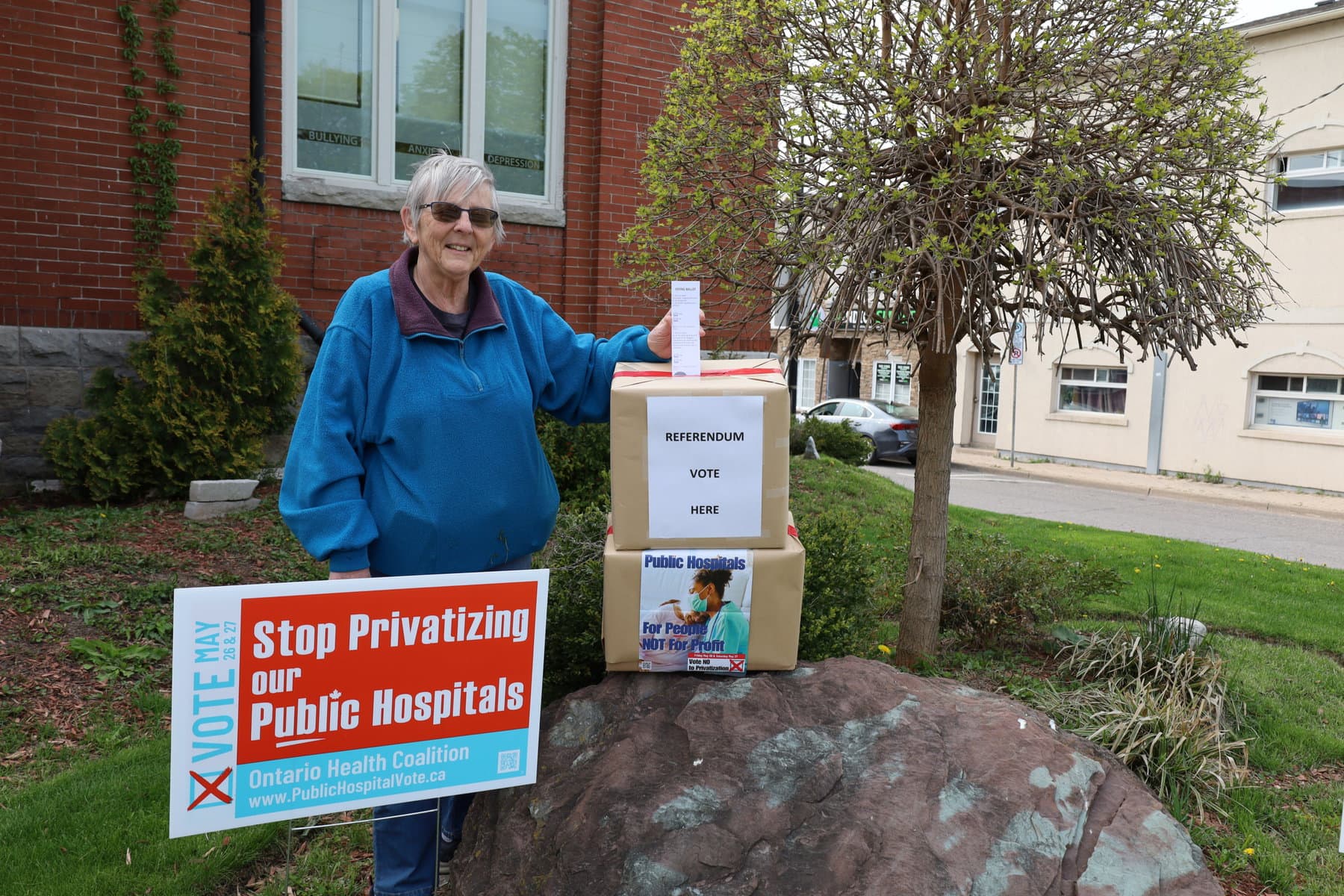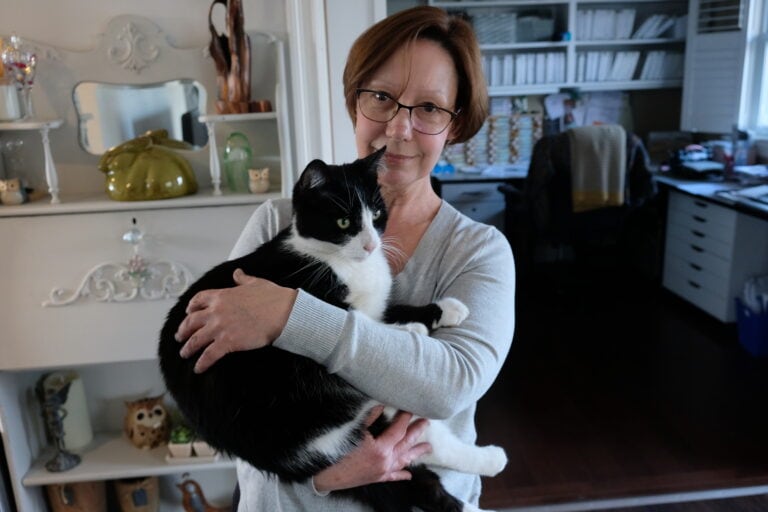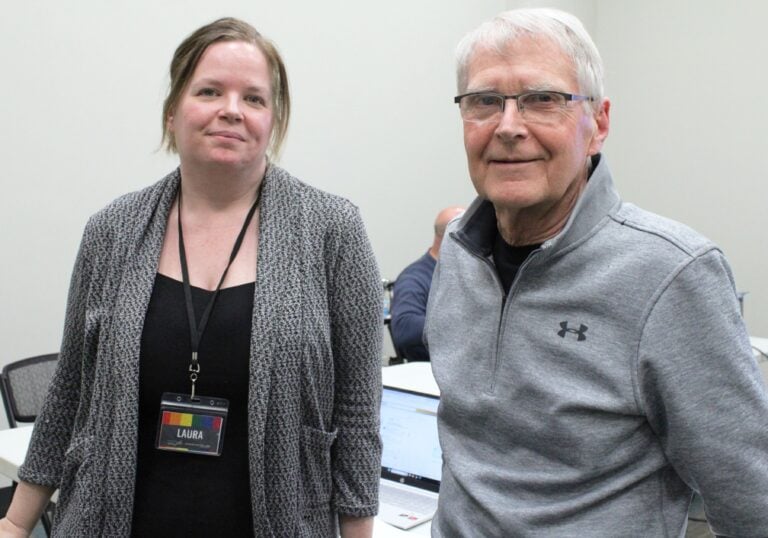Three voting stations will pop up in Niagara-on-the-Lake this month as part of an effort across the province to stop the government from allowing private health care clinics to expand services.
The Ontario Health Coalition is leading a referendum against the provincial government’s Bill 60, which passed on Monday.
The new provincial law, the Your Health Act, will allow third parties and for-profit corporations to operate private clinics.
Critics say they would have less public accountability and oversight than public hospitals.
A government news release said the bill is supposed to reduce wait times for surgeries, procedures and diagnostic imaging by sending patients to private clinics.
Bill 60 replaces the Independent Health Facilities Act with the Integrated Community Health Services Centres Act of 2023 and amends 34 other acts.
Members of the health coalition say they are against privatization, arguing it could cause problems in an already fragile health care system.
“When you start reading this bill, and if you look at all the criticisms with regards to it, it’s just so full of holes,” said Sue Hotte, chair of the Niagara Health Coalition.
The coalition is setting up voting stations in town and across the region on May 26 and 27 to try and prevent the province from enacting the bill, the next step required after a bill is passed.
If there’s enough of a public outcry about the bill, Hotte said, the province could “stall and not do anything.”
According to an analysis done by the Ontario Health Coalition, Bill 60 could give third parties and for-profit corporations power in issuing licenses to private clinics with limited accountability requirements.
Ontario has a number of independent health facilities that are licensed under the Independent Health Facilities Act, first passed in 1990 and last amended in October 2021.
In this act, the director overseeing private clinics must be an employee of the Ministry of Health and Long-Term Care and cannot be a third party.
Since the director is considered a public servant, they follow conflict of interests rules, disclose financial information and follow freedom of information regulations, states the coalition analysis.
However, under Bill 60, it states a director “may be an individual or another entity,” compared to the old act, which states the health minister “shall appoint an employee of the ministry to be the director of independent health facilities.”
The coalition’s analysis states that this means the director can be a third party or for-profit corporation, neither of which have to abide by public servant rules.
The issuance of a licence for a health care clinic, Bill 60 reads, is discretionary, and a director “is not required to issue a licence to any person” and “may prefer any application over other applications.”
“There is nothing in Bill 60 to stop corruption among the director(s),” the coalition’s analysis reads.
During May 8’s debate in provincial parliament on Bill 60, MPP Adil Shamji brought up concerns from critics about establishing conflict-of-interest rules for directors who issue licenses.
In response, MPP Robin Martin said the act “actually expands oversight and patient protections,” listing some provisions included in the bill.
For example, health care centres will be required to have a process for responding to patient complaints and providers will not be allowed to refuse to provide patients with an insured service if they choose not to pay.
Another issue, Hotte said, is private clinics will take away much-needed staff from public hospitals at a time when the public health systems are facing shortages, understaffing, burnout and underfunding.
“Hospitals get funded for the number of operations that they do,” she said.
If surgeons decide to leave and work in private clinics, this could affect the amount of funding public hospitals will get for operations, she said.
“At the end of the day, Bill 60, which is supposed to speed up operations, it isn’t,” she said.
“You’ve got the same people doing it, but what it will do is take funding away and those really important, highly trained human resources,” she added.
She said she’s also worried private clinics will try and sell unnecessary procedures and tests to clients.
Premier Doug Ford’s government states the bill would follow the Canada Health Act and ensure people “receive insured services using their OHIP card, never their credit card.”
Hotte said that’s true, but there’s nothing stopping the clinics from making money by charging registration fees.
“We’re really against the privatization of hospital services,” she said.
“What we need to do is make sure that we have a fully funded one-tier public health system that’s available to everyone,” she added.
Hotte said she hopes the referendum can get one million votes across Ontario.
Early voting will be available at the Niagara-on-the-Lake Community Centre on May 23.
On May 26 and 27, people can vote at the old Court House on Queen Street.
And on May 27, votes can be cast at Sparky’s Park on Tanbark Road in St. Davids.
All voting locations will be open from 9 a.m. to 4 p.m.
As well, anyone can vote online at Publichospitalvote.ca.
Hotte said all votes will be counted and sent to the Ontario Health Coalition by midnight on May 28 with the results announced on May 30.











